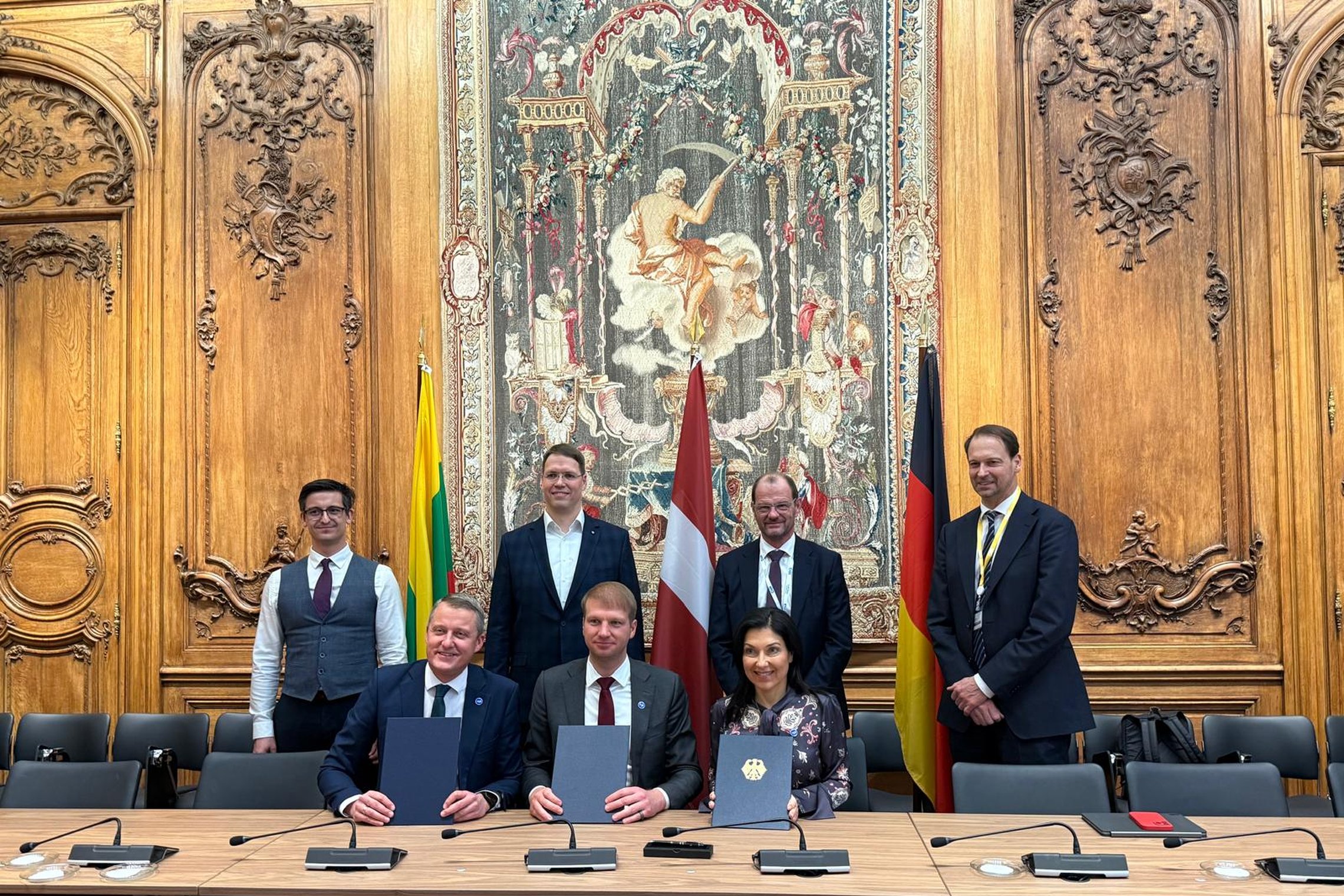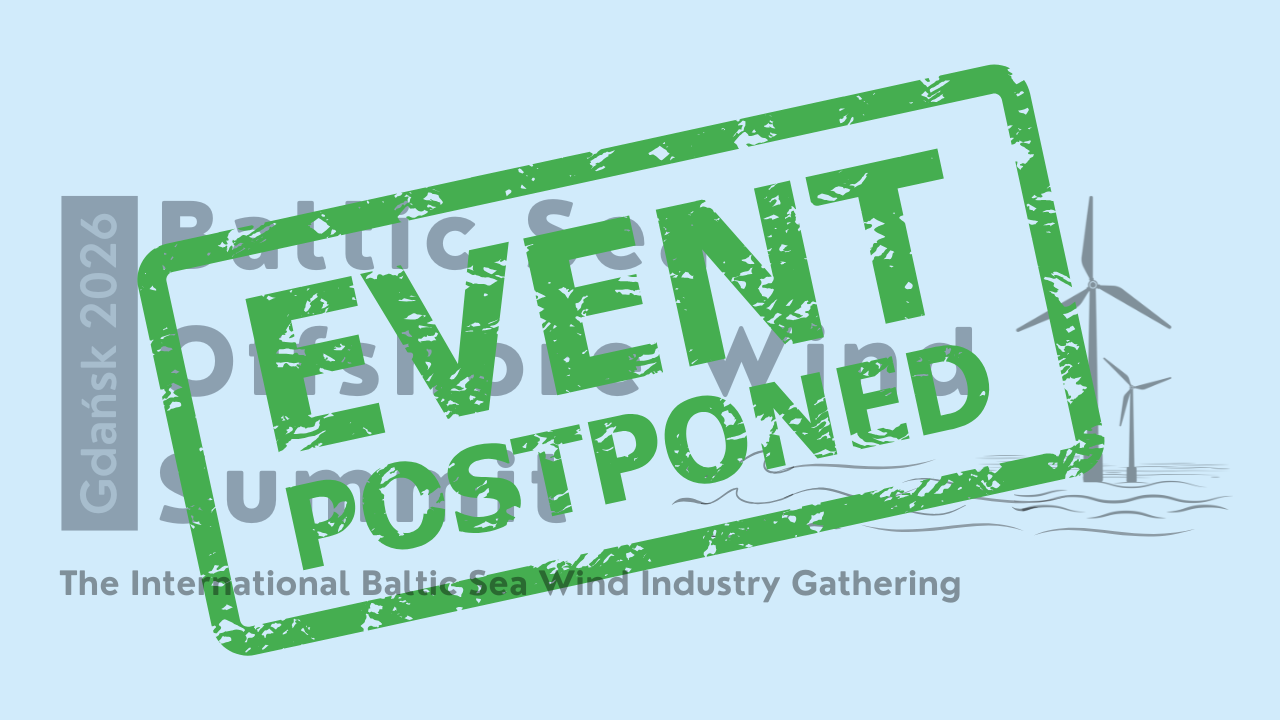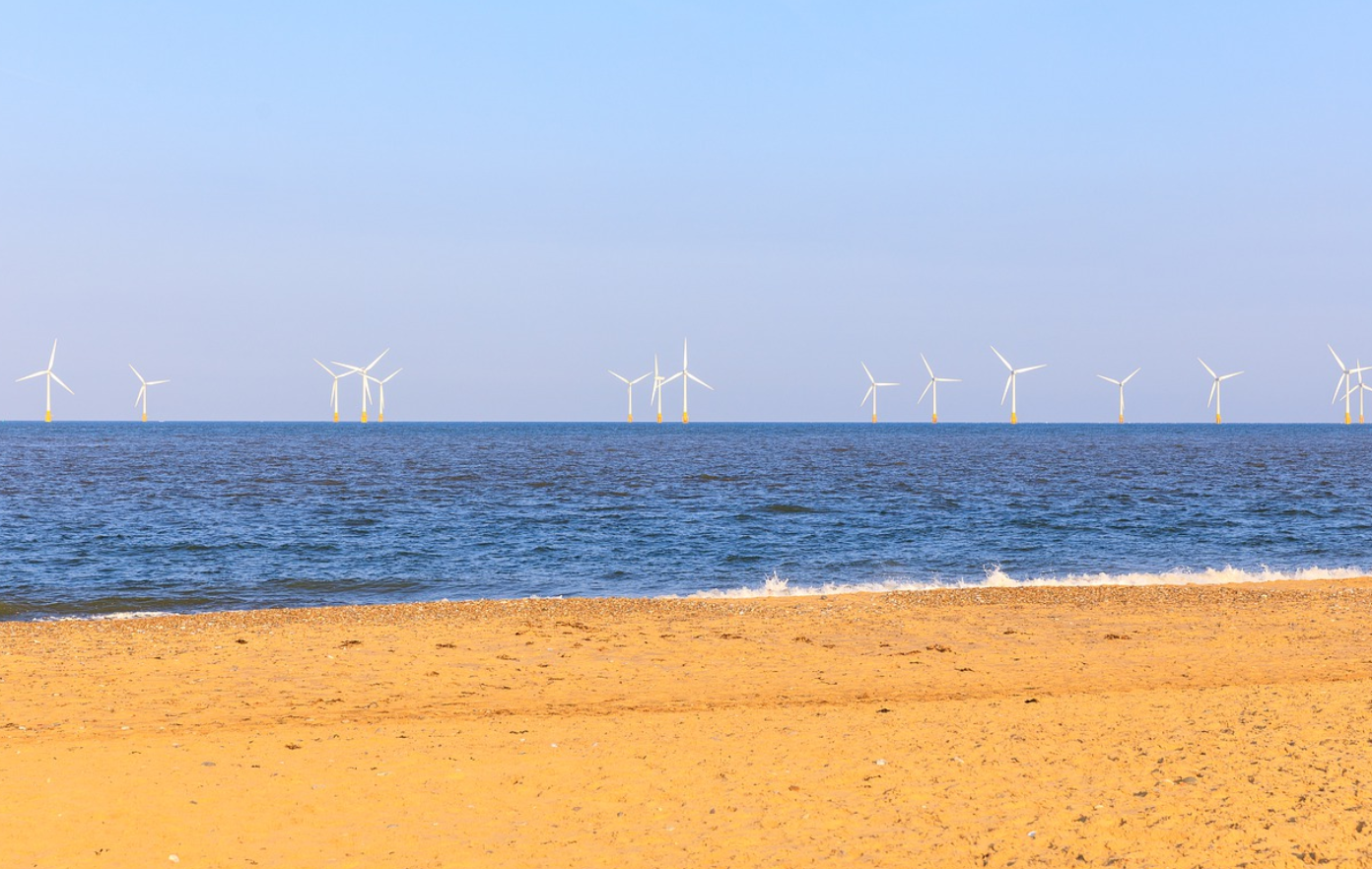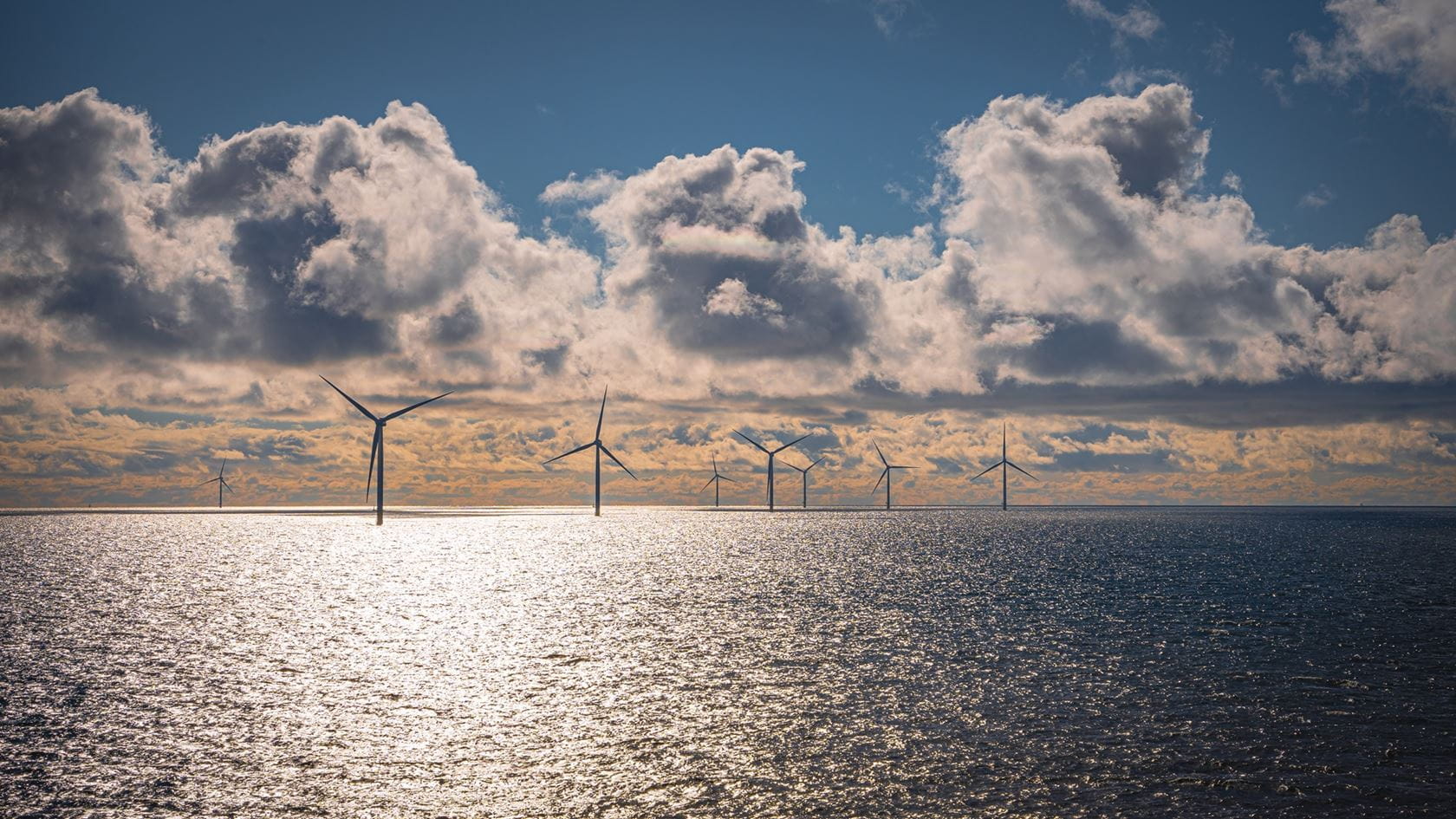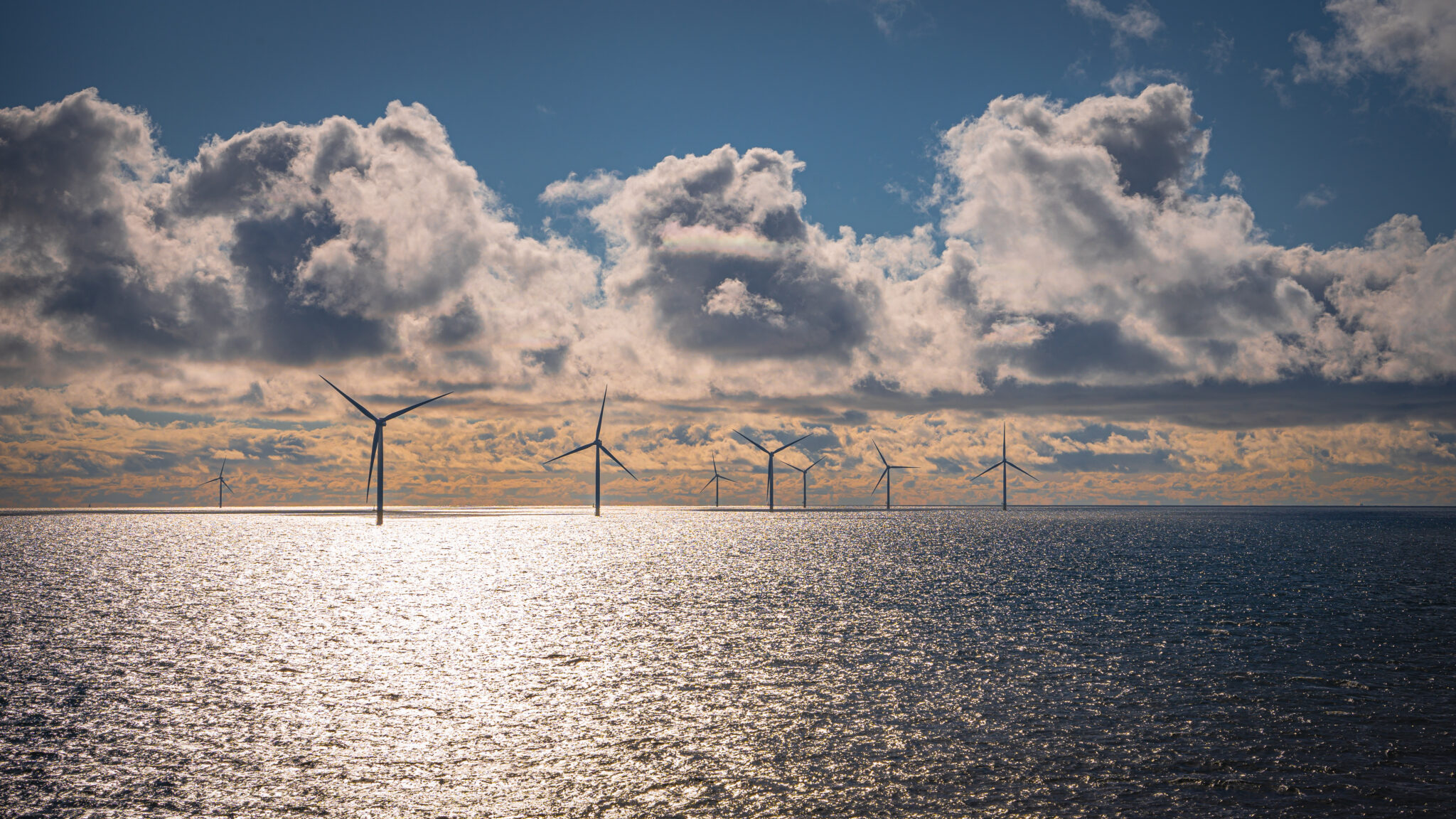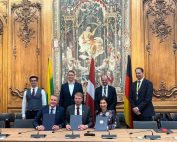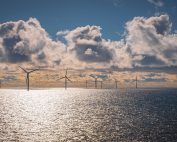Key challenges for offshore wind energy in the Baltic Sea in 2023 were the topic of a webinar hosted by BalticWind.EU. Offshore industry experts from the Baltic countries of our region discussed what actions should be taken next year, summed up the last one and discussed key actions for the effective development of the industry.
All speakers agreed that 2022 was a revolutionary year, also for the Baltic Sea region: “Last year was an important lesson for all of us because of the Russian aggression in Ukraine. We have learned that energy policy is the policy of all of us, because it is not only energy itself, it is also climate, security, industrial, business and social issues”, said Kristian Jensen, CEO of Green Power from Denmark. Rytis Kėvelaitis, CEO of Energy Unlimited from Lithuania, was of a similar opinion: “2022 has shown that energy security issues depend on energy raw materials, mostly fossil fuels, from Russia, and as a consequence of the aggression against Ukraine, the prices of these raw materials have increased greatly. The solution for a greater energy security is rapid renewable energy expansion built by the European industry.”.
At the meeting, participants drew attention not only to the energy crisis related to Russia’s war in Ukraine. They also stressed that 2022 was a year where many commitments and declarations were made at various levels (regional, national, ministerial and international) to support the effective development of the industry. “The EU’s ambitious plans can help accelerate the industry’s development. The EU has created a framework and motivates action in this regard, but now the national governments have to pick up the baton and take action effectively. I hope that this long planning process is coming to an end”, said Kristian Jensen. The experts agreed that 2023 should be the time when real action will begin, as a result of changing our approach to energy security . As a first step, the webinar’s participants identify the creation of modern operating models towards offshore development. “The Marienburg Declaration, which commits the Baltic Sea countries to greater cooperation in offshore wind energy, secured a commitment of a sevenfold increase in offshore wind capacity in the Baltic Sea by 2030”, states Rytis Kėvelaitis. This is an ambitious yet realistic goal. In 2022, Klaipėda port authority signed an investment agreement for the offshore wind construction terminal in Lithuania, and the country is now preparing for the first two offshore wind energy auctions. The first 700MW auction will take place in September. The first offshore wind farm in Lithuanian Baltic sea waters is expected to be operational until 2030. “We look forward to clear acceleration of the industry’s development in 2023. In Sweden, the energy-intense industry demands more electricity in their transition and offshore wind has a great role to play to secure their competitiveness. We have a number of projects with a total value of around 14 GW waiting for government approval. A lot depends on the government’s decision, this is key at the moment”, explained Daniel Badman, CEO of the Swedish Wind Energy Association. He also pointed to the EU’s ambitious plans that could help accelerate the industry’s development. “In Denmark, natural energy sources are not being used on the scale that they could be used at and not on the scale that the European framework allows. Unfortunately, the Danish authorities are taking a conservative approach to the subject. We need to think about how to speed things up in terms of investment funding, but also in terms of labour law, marine protection and so on. I would like to see all this happening in 2023, but I am not sure that it will”, said Kristian Jensen, CEO of Green Power from Denmark. Heike Winkler, Managing Director of WAB from Germany, believes that the expansion of offshore also heavily depends on national regulations, offshore plans, fishing conditions and climate. “A significant contribution to supporting sustainable development depends on regulatory development and project innovation”, she explained. “What is needed for the Baltic Sea to thrive is a combination of appropriate policy, international relations, regulation and, necessarily, for the industry to be fuelled by professionals. It is also important to push ahead with the expansion of port infrastructures today so that they can be used in the future for the expected ramp-up of offshore wind power”. The Polish point of view also attaches great importance to this last matter. Karolina Lipińska, Head of the Pomeranian Platform for Offshore Wind Energy, advocated the need for education and training. “We have a large potential in the Baltic Sea, as much as 33GW. Today we are at the second stage, i.e. we are applying for permits, and this means that we will need a lot of skilled workers, we need to bet on education. Hence initiatives such as the EDU OFFSHORE WIND fair in March. This is the first event of this scale dedicated to offshore wind energy in Poland. At the moment, more than 3,000 young people have already registered for the fair. In the future, we are thinking of organising such a fair in cooperation with other Baltic countries”, she commented. According to the expert, there is still a lack of schools and universities that can educate in the offshore industry. She also pointed to the need for classes in schools that would outline a career path and show what awaits future employees. “To secure offshore plans we also need visionaries, people who understand green energy. That is why we are working to ensure that our residents understand these ideas”, explained the head of the Pomeranian platform. In this context, it is hopeful that the EU has designated 2023 as the , which should encourage such initiatives.
Another issue raised by the webinar participants was cooperation in the region. “We still have a lot of work to do, but the most important are two issues. Consolidation at national and regional level to support local supply chains. This is essential to strengthen cooperation around the Green Deal. The second issue is international cooperation. We still see that Poland still has sources to learn from in terms of experience in the industry, because there are many more experienced countries. We are also looking for new opportunities for our market, for our entrepreneurs with less experience”, as pointed out by Karolina Lipińska. “Today we know that we have to bet on cooperation in the region. Especially after Russia’s aggression against Ukraine. In Sweden, we have already invested heavily in onshore wind in 2021, and we now need to “kick-off” the build out of offshore wind” believes Daniel Badman.
Furthermore, the interviewees emphasised the importance of cooperation and consolidation when it comes to global energy market developments. The development of green energy is a worldwide tendency, which is also present in Asia or China. This needs to be constantly kept in mind in order not to be left behind. Therefore, a continuous dialogue is needed, as emphasised by the panellists. “Offshore is not a sprint, but a marathon”, concluded Rytis Kėvelaitis. To receive multiple permit approvals take years as well as complex infrastructure construction afterwards. To sum up, offshore wind project might take over a decade from its initiation to operation. It is important to take into account the grid planning, as it requires lengthy permitting process as well. Considering grid of the future, it is important to address how to ensure energy transmission from the Baltic Sea with huge offshore wind potential to a industrial demand centers in Central Europe.”, presented Rytis Kėvelaitis. “In order for this to succeed, there needs to be, and will be, public consensus around offshore. People need to know what benefits this will bring”, Heike Winkler concluded the meeting.
Participants of the debate were:
Badman Daniel, CEO of the Swedish Wind Energy Association
Jensen Kristian, CEO of Green Power from Denmark
Kėvelaitis Rytis, CEO of Energy Unlimited from Lithuania
Lipińska Karolina, Head of thePomeranian Platform for Offshore Wind Energy
Livzeniece Lasma, Executive Director of the Latvian Wind Energy Association
Winkler Heike, Managing Director of WAB, Germany
Gumbau Anna, moderator, journalist specialising in European climate and energy policy issues

